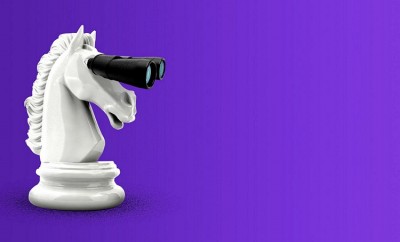
Neuroscientist: Covid Brain Is Real. Here’s How to Deal With It
Feeling mentally fuzzy? A scientist explains the mechanics of why you’re struggling to think straight during the pandemic.
Deciding when and how to pivot your business may be the difference between bankruptcy and survival. Putting that mask on, or not, could could keep you or someone you love out of the hospital. With stakes so high, you’d think that evolution would have pushed our brains to be sharper about making decisions during a crisis. But for most of us the pandemic hasn’t left us feeling any smarter.
On the contrary, many people are feeling fuzzy headed and emotionally fragile at the moment. Frantically trying to figure out how to keep our heads above water despite the huge changes in our lives is one obvious reason for that. But according to INSEAD neuroscientist Hilke Plassmann the trouble goes deeper.
You’re not just sleep deprived and stressed, you’re experiencing the effects of very real brain changes brought on by the trauma and uncertainty of the pandemic. In a recent INSEAD Knowledge article written together with her INSEAD colleague Benjamin Kessler, she dubs the phenomenon “COVID brain” and explains its physiological roots:
In times like these, our brains tend to work differently. The prefrontal cortex, the area of the brain responsible for complex planning, working memory and analytical thinking, is swamped with ambiguous signals, impacting our decision-making abilities. Meanwhile, the brain scours its long-term memory systems for comparable experiences. Finding few precedents for this pandemic, it looks intently outward for guidance on what to do next.
The combination of impaired analytical thinking and heightened external sensitivity creates what can be called ‘Covid-19 brain’ – a fragile, frazzled state that keeps our thoughts simultaneously on edge and unfocused.
If that sounds familiar, you can at least take comfort that you’re not alone and you’re not imagining things. Your brain really is struggling at the moment and a couple of extra naps won’t solve the problem (though they certainly wouldn’t hurt).
What will? Time and self compassion are essential, but in the meantime Plassmann offers three ways to start feeling more clear headed:
Συνέχεια ανάγνωσης εδώ
Πηγή: inc.com




